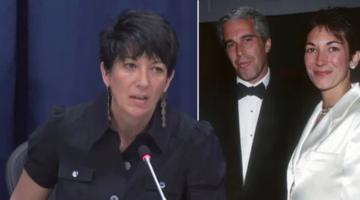The view that we have no future allows those on the planet with privilege to continue with their ideology of disposability.”
“Now is the time to make a dramatic shift to the alternative futures that already exist.”
In this series, we ask acclaimed authors to answer five questions about their book. This week’s featured author is Macarena Gómez-Barris. Gómez-Barrisis Chair of the Department of Social Science and Cultural Studies at the Pratt Institute. Her book is The Extractive Zone: Social Ecologies and Decolonial Perspectives.
Roberto Sirvent: How can your book help BAR readers understand the current political and social climate?
Macarena Gómez-Barris:There is an overload of information about climate change and impending catastrophe, but rarely do we have the opportunity to learn about those actually changing our collective future by challenging our capitalist present. In The Extractive ZoneI show how Indigenous land and water defenders and artists from the Americas document the path of greed and environmental destruction and find routes out of nature’s presumed total collapse.
The current global political and social climate is toxic, yet in local spaces within the Global South there are active solutions to human-induced toxicity. Indigenous and mestizx artists and activists have produced an important body of work that mitigates against the “no future” paradigm of modernity. My research shows us how to learn from and listen to those who have most suffered from racial and extractive capitalism.
What do you hope activists and community organizers will take away from reading your book?
My objective with The Extractive Zoneis to provide an expanded vocabulary for how to think about racial and extractive capitalism towards local, interspecies, and planetary justice. I wrote this book in dialogue with and learning from activists, thinkers, makers, and artists in the Americas.
In the aftermath of Standing Rock protests, my hope is that the book offers even more conceptual tools for truly reckoning with the generational violence of territorial dispossession by thoroughly naming and contending with histories of colonization and occupation. It is also imperative that we learn from beyond our own borders and contend with the interrelatedness of carbon and resource dependency. To think about decolonial futures, we must recognize our own complicity within the web of inter/dependence that is commodity and extractive capitalism. I focus on the power of refusal, resistance, and opting out as articulated by trans-feminist activists, Indigenous intellectuals, artists, and activists. I lift submerged perspectives and acts of solidarity within Bolivia, Peru, Chile, Ecuador, and Colombia against the ideology of the anthropocene.
We know readers will learn a lot from your book, but what do you hope readers will un-learn? In other words, is there a particular ideology you’re hoping to dismantle?
I hope we can collectively unlearn the capitalist ideology that our future is inevitably fucked. This idea leads to more nihilistic and individualizing behavior amongst privileged groups, while suffering amongst the most vulnerable populations continues and becomes even more acute.
At a recent event, and to be a provocateur, a well-known white academic asked me this: “What if instead of critical hope, like you suggest, we focus on our inevitable destruction. Wouldn’t that open up some space for other ideas?” My answer was a resounding, “No, it would not.” The increasingly hegemonic view that we have no future allows those on the planet with accumulative material privilege to continue with their ideology of disposability, whether it is of people, of things, of the oceans, of the rivers, of below surface deposits, or of the land. Instead we must heed the urgent call of Indigenous peoples and other submerged populations in the Global North and Global South that saynow is the time to make a dramatic shift to the alternative futures that already exist. Paraphrasing my colleague and student Bekah Garrison, I would say the time is now for settler responsibility.
Who are the intellectual heroes that inspire your work?
There are so many intellectuals who I admire and am indebted to. This book in particular would not be possible without Chicana feminists Emma Pérez, Laura Pérez, and the work of Maria Lugones as decolonial thinkers that also put gender and sexuality squarely in their work. Walter Mignolo and Nelson Maldonado-Torres have made their impact on me, as has Lisa Lowe’s thinking on colonialism and its legacies, and Ruthie Gilmore’s critical scholarship and activism is key.
I’m greatly inspired by and indebted to the work of critical Indigenous Studies including Kēhaulani Kauanui, Jodi Byrd, Leanne Simpson, and Mishuana Goeman. All have helped me think about and frame my work as part of a dialogue in hemispheric Indigeneities. Saidiya Hartman’s work on radical archives and her new work on anarchist archives is extraordinary. I’m inspired by the theoretical dexterity of Rod Ferguson and Avery Gordon’s pathbreaking work, especially as fellow exiles from Sociology, as well as the work of my mentors Herman Gray, Rosa Linda Fregoso, and Guillermo Delgado-P. My partner’s work, Jack Halberstam, has been an endless source of dialogue and inspiration. And the work of my students Ho’esta Mo’eh’hahne, Sarah Fong, Athia Choudhury, Crystal Baik, Bekah Garrison, Floridalma Boj-López and Gretel Vera-Rosas has offered me important modes of thinking alternatives. We often don’t acknowledge how much we learn from our students, something I notice is less true in art schools since collaboration, critique, and engagement is valued.
In what way does your book help us imagine new worlds?
My book is an aspirational reading, even as it tries to be as analytically and historically precise as possible. I can also say that I’m deeply invested in the poetics of future imagining. Rather than suggest the future is inevitably a horrific one, my point is to show the ways that all kinds of communities, activities, imaginaries, worlds are already designing how to live with less and relate across difference more. When I was researching this work, I had the good fortune to be in and live in intensely biodiverse spaces such as Eastern Ecuador and the Galapagos, as well as in Southern Chile. These racialized geographies had been cut through with colonial violence, and studying and sensing this created deep mourning and foreboding in me about planetary loss. Through the films of Francisco Huichaqueo and in our conversations, I encountered how Mapuche ancestors dream in blue, piercing the land of the living with their warnings and their teachings. These parallel worlds exist and are very powerful; we must evolve to perceive and activate them in the here and now.
Roberto Sirvent is Professor of Political and Social Ethics at Hope International University in Fullerton, CA. He also serves as the Outreach and Mentoring Coordinator for the Political Theology Network. He’s currently writing a book with fellow BAR contributor Danny Haiphong called American Exceptionalism and American Innocence: The Fake News of Wall Street, White Supremacy, and the U.S. War Machine.
COMMENTS?
Please join the conversation on Black Agenda Report's Facebook page at http://facebook.com/blackagendareport
Or, you can comment by emailing us at comments@blackagendareport.com



















